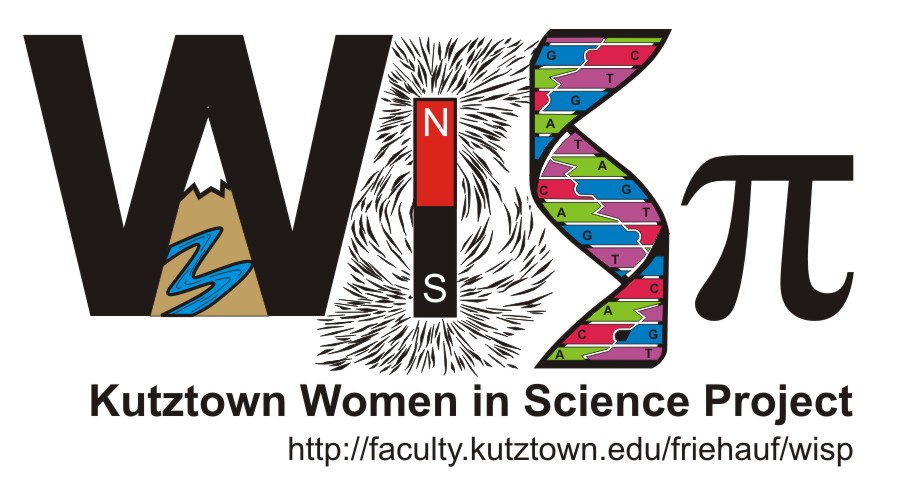
Women in Science Project
Kurt
Friehauf
-
Kutztown University

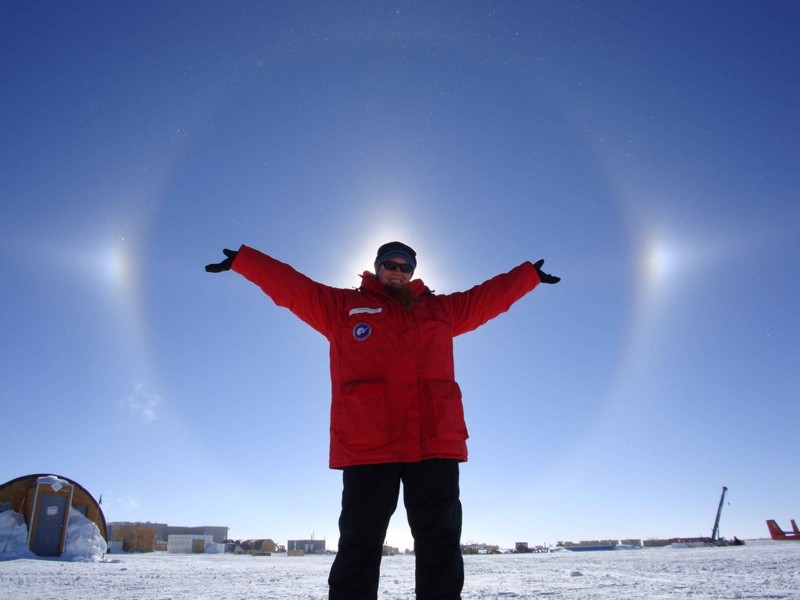 Dr.
Samantha
Hansen - Geophysicist - Pennsylvania State University
Dr.
Samantha
Hansen - Geophysicist - Pennsylvania State University
Have Geophones - Will
Travel
Monday April 26, 2010 from 7-8 pm
Kutztown
University
Boehm
Science Building
-
Room 262
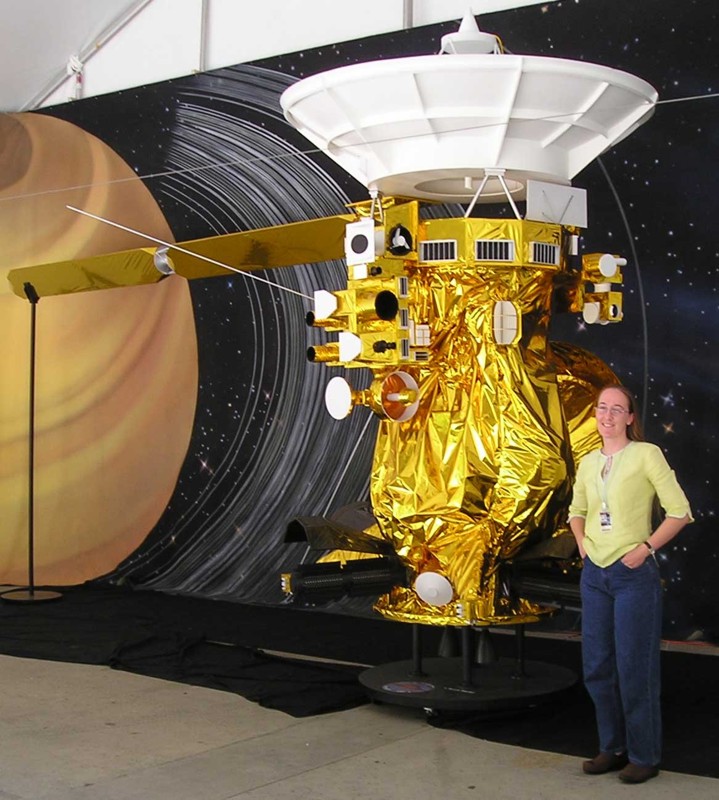 Dr.
Lindsey
Chambers - Planetary Physicist
Dr.
Lindsey
Chambers - Planetary Physicist
- University of California -
Santa Cruz
Saturn’s rings ring true
Monday April 12, 2010 from 7-8 pm
Kutztown
University
Boehm
Science Building
-
Room 145
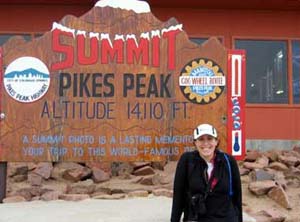 Dr. Aviva Sussman - Los Alamos National
Laboratory Geoscientist
Dr. Aviva Sussman - Los Alamos National
Laboratory Geoscientist
Life Cycles of Landscapes
Thursday October 22, 2009 from 11-12 pm
Kutztown
University
Boehm
Science Building
-
Room 262
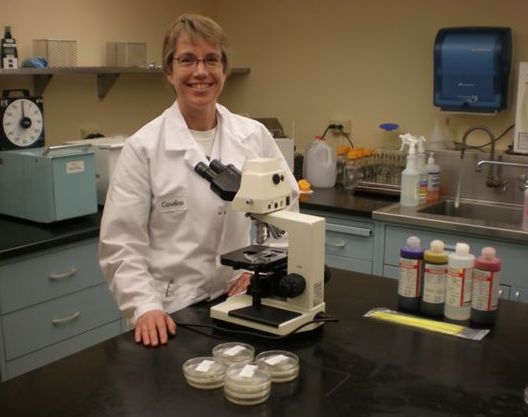 Caroline
Lease -
professional microbiologist
Caroline
Lease -
professional microbiologist
From Microbes to
Mammals: Journey Through Science
Wednesday April 15, 2009 from 7-8 pm
Kutztown
University
Boehm
Science Building
-
Room 260
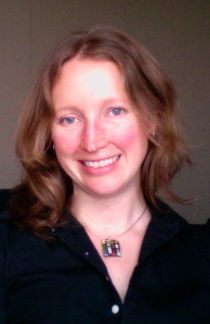 Dr.
Donna
Shillington - Geophysicist
- Columbia Univeristy
Dr.
Donna
Shillington - Geophysicist
- Columbia Univeristy

 National Science
Foundation MARGINS
speaker
National Science
Foundation MARGINS
speaker
Recipe(s) for
continental breakup
Monday April 6, 2009 from 7-8
pm
Kutztown
University
Boehm
Science Building
-
Room 262
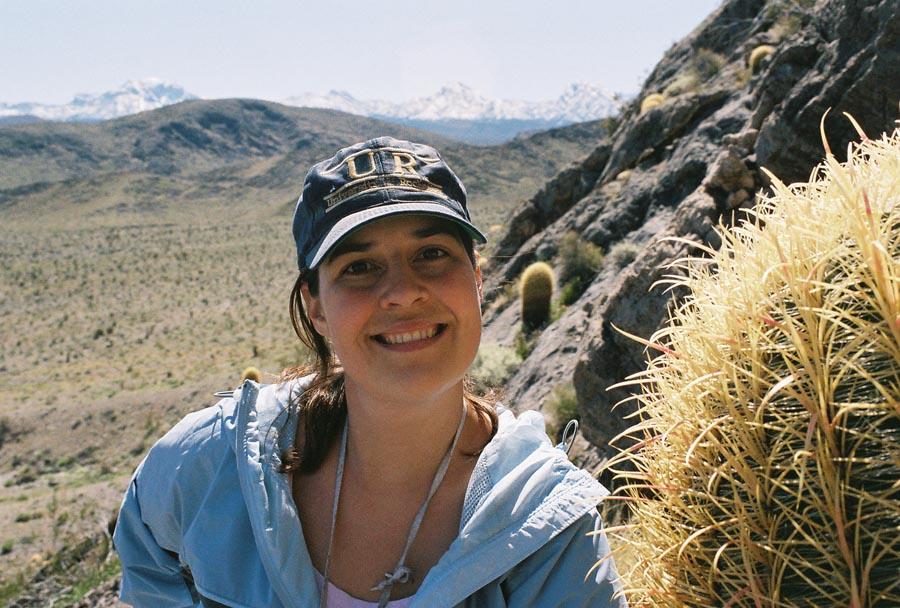 Dr.
Sara
Pruss - Paleontologist -
Smith College
Dr.
Sara
Pruss - Paleontologist -
Smith College
Investigating
life
in
ancient
oceans
Monday March 30, 2009 from 7-8
pm
Kutztown
University Boehm Science Building
-
Room 260
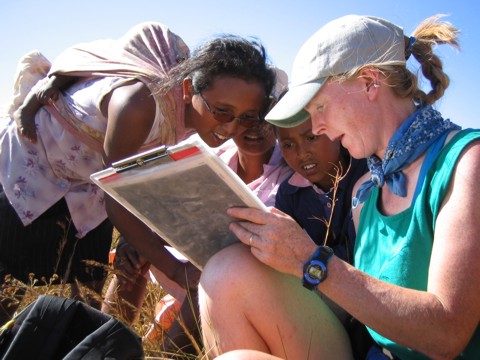 Dr.
Rónadh
Cox - Geologist - Williams
College
Dr.
Rónadh
Cox - Geologist - Williams
College
It's
a
good
life -So breathe deeply, swing hard!
Monday February 2, 2009 from 7-8 pm
Kutztown
University Boehm Science Building
-
Room 260
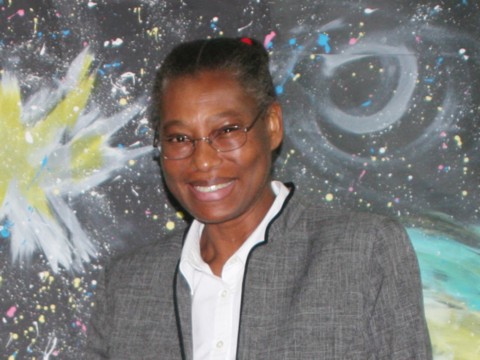 Dr.
Mercedes
Richards - Astrophysicist - Pennsylvania State
University
Dr.
Mercedes
Richards - Astrophysicist - Pennsylvania State
University
Dream
the Impossible Dream: My Journey to the Stars
Monday January 26, 2009 from 7-8 pm
Kutztown
University Boehm Science Building
-
Room 145
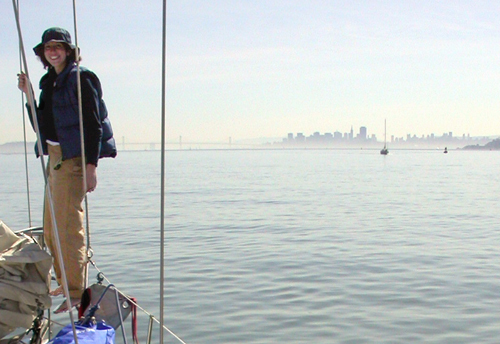 Dr.
Kamini
Singha -
Hydrogeologist
-
Pennsylvania
State University
Dr.
Kamini
Singha -
Hydrogeologist
-
Pennsylvania
State University
Confessions
of
a
Hydrogeologist
Monday November 24, 2008 from
7-8 pm
Kutztown
University Boehm Science Building
-
Room 145
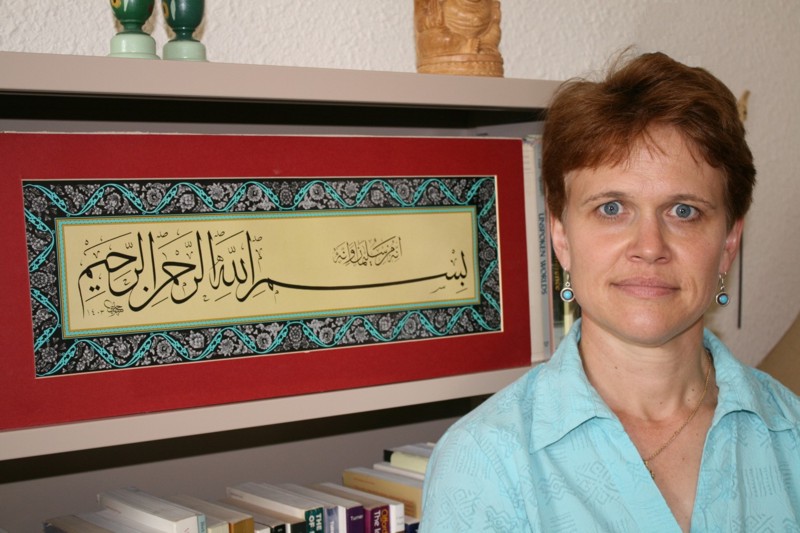 Dr.
Kim Shively - Anthropologist - Kutztown University
Dr.
Kim Shively - Anthropologist - Kutztown University
A woman
anthropologist in the Middle East - Politics, religion, and everyday
life
Monday November 17,
2008
from 7-8 pm
Kutztown
University Boehm Science Building
-
Room 145
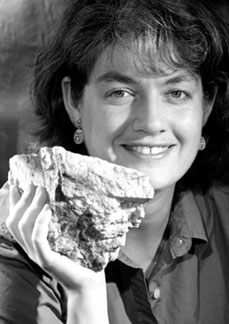 Dr. Joan Ramage -
Remote Sensing Geoscientist - Lehigh
University
Dr. Joan Ramage -
Remote Sensing Geoscientist - Lehigh
University
Chasing
Glaciers: Ice and Climate from Alaska to the Andes
Wednesday November 12,
2008
from 7-8 pm
Kutztown
University Boehm Science Building
-
Room 260
 Jessica
Slish - Physicist - Yuasa
Battery
Jessica
Slish - Physicist - Yuasa
Battery
Taking Charge of Your Future: the Story of
a Physicist Working With Batteries
Monday
November 3, 2008 from
7-8 pm
Kutztown
University Boehm Science Building
-
Room 145
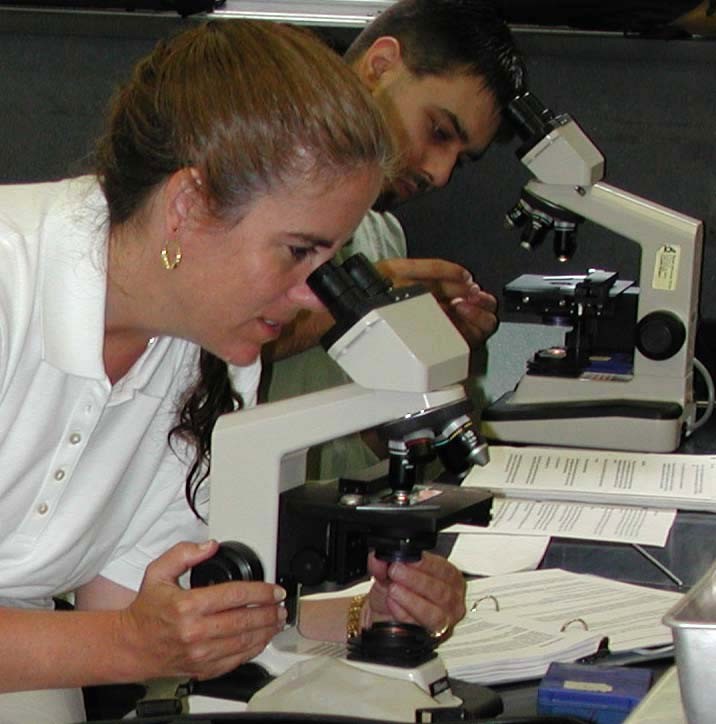 Dr.
Anne
Zayaitz - Microbiologist
Kutztown University
Dr.
Anne
Zayaitz - Microbiologist
Kutztown University
Playing
with
the
Boys’
Team: A life dedicated to microbiology and helping others
Please join us to hear what
life is like as an altruistic
scientist and teacher
Wednesday
October 22, 2008 from 7-8 pm
Kutztown
University Boehm Science Building -
Room 260
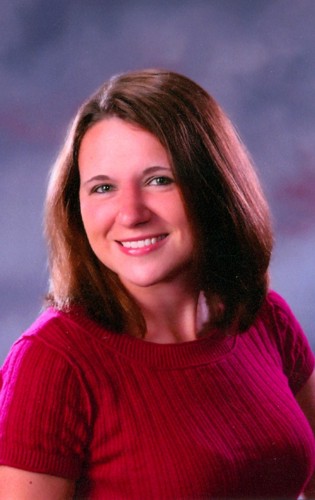 Melissa
Kistler
-
Inorganic chemist - Inorganic Chemist - Lehigh University
Melissa
Kistler
-
Inorganic chemist - Inorganic Chemist - Lehigh University
From
a
small
town to a PhD: a retrospective on the graduate school
experience and research
Please join us to hear tales
of what life is like in graduate school
Wednesday October 8, 2008 from
7:00-8:00
Kutztown
University
Boehm
Science Building -
room 261.
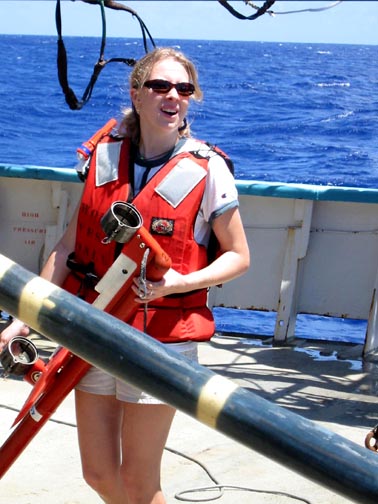 Adrienne
Oakley
-
Marine
Geophysicist - Marine Geophysicist - University of Hawaii
From Sunsets to Seismics: How I became a
Geophysicist
Adrienne
Oakley
-
Marine
Geophysicist - Marine Geophysicist - University of Hawaii
From Sunsets to Seismics: How I became a
Geophysicist
Please join us
to hear adventures of cutting edge science on the high seas!
Tuesday
September 9, 2008
from 7:00-8:00 pm
Kutztown
University Boehm Science Building - room 145.
Introduction
Although women constitute 59%
of the Kutztown University student body, only 35% of physical science
students are women. This is typical of most earth and
physical science
programs in America (see NSF statistics -
specifically table C-4).
That's
a
lot of good minds not being focused
on some very interesting and beneficial study!
This program
hopes to promote
women in sciences by
- Establishing mentoring programs that connect high
school women with college science women and college women with
professional
women scientists,
- Making an impression on college students of both genders
by providing highly visible examples of successful women scientists,
and
- Creating a forum in which women can discuss gender-specific
career issues in
science and develop a supportive network.
Although we
hope to create
opportunities specifically promoting women in science, this project
does not
intend to divide students along gender lines.
Rather, we hope to educate and enculturate both men and
women on the issues to create a healthy understanding that will
spread upward through academia and industry as students graduate from
Kutztown
University.
Two-pronged mentoring program
– High School Mentoring and Professional
Mentoring
The goal of
the mentoring
programs is to establish a clear communication link for women
interested in
sciences with experienced people in the next stages of their respective
careers.
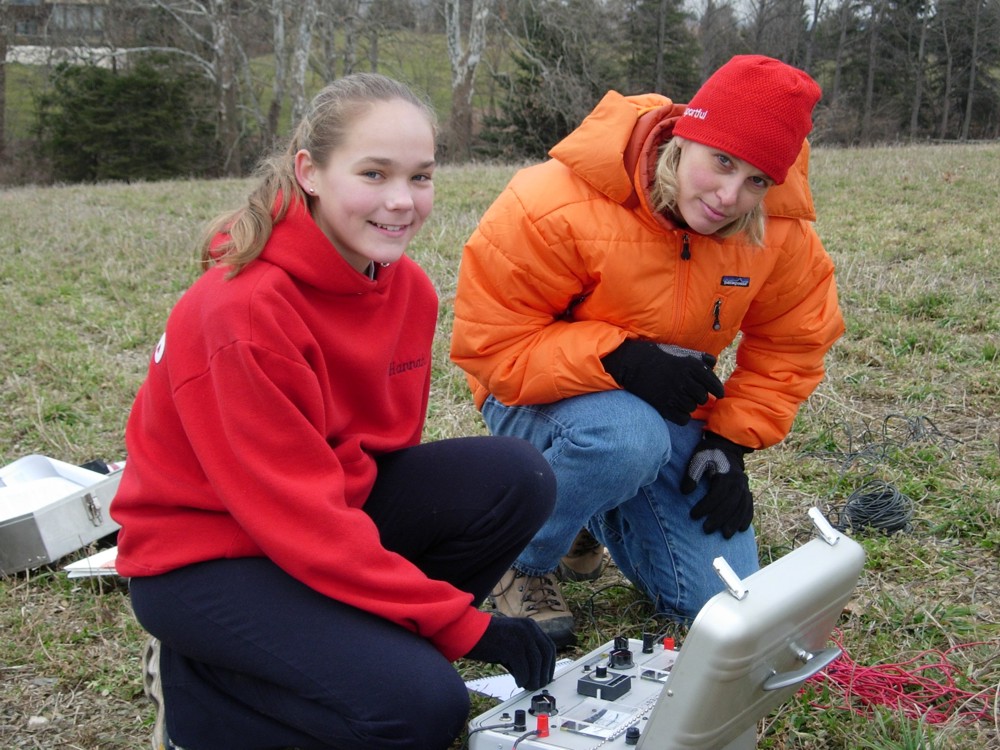 The High
School
Mentoring
Program pairs high school women with
college
science women. This program has the
goals of counteracting negative societal programming that undermines
self-esteem
(e.g., peer pressure to pursue traditional roles), encouraging young
women to pursue
college educations in science, and empowering them before they get to
college
so that they are more successful coming into the program.
Many high school students in rural Pennsylvania come from
families without college educations, so higher education is a
mysterious and
potentially forbidding unknown. Such
intelligent
young women may not even consider higher education, let alone very
exciting and enriching careers in science.
Here, a little bit of knowledge can change an entire life.
Since many high school students are more
likely to trust the advice and information from college women with
actual
experience, as opposed to the "adults" in their lives, the High
School
Mentoring
Program
establishes a link between these two groups of young people. In
addition to personal contact between
mentor pairs, several social events will bring the group together as a
whole,
and the high school women
will be encouraged to spend the day in college with their
college partner for the
days we host the Setting an Example
Speaker Series.
The High
School
Mentoring
Program pairs high school women with
college
science women. This program has the
goals of counteracting negative societal programming that undermines
self-esteem
(e.g., peer pressure to pursue traditional roles), encouraging young
women to pursue
college educations in science, and empowering them before they get to
college
so that they are more successful coming into the program.
Many high school students in rural Pennsylvania come from
families without college educations, so higher education is a
mysterious and
potentially forbidding unknown. Such
intelligent
young women may not even consider higher education, let alone very
exciting and enriching careers in science.
Here, a little bit of knowledge can change an entire life.
Since many high school students are more
likely to trust the advice and information from college women with
actual
experience, as opposed to the "adults" in their lives, the High
School
Mentoring
Program
establishes a link between these two groups of young people. In
addition to personal contact between
mentor pairs, several social events will bring the group together as a
whole,
and the high school women
will be encouraged to spend the day in college with their
college partner for the
days we host the Setting an Example
Speaker Series.
 The Professional Mentoring
Program creates a direct, private, and
therefore potentially frank and open environment for experienced
professional
women scientists to discuss potential issues with Kutztown University
science students and give guidance on how to deal with problems as they
graduate from school out into the working world. College
women
graduating
in science face
daunting questions and would benefit from the support of those who have
gone before
them. This program also has potential to
establish a network for job leads in industry.
The Professional Mentoring
Program creates a direct, private, and
therefore potentially frank and open environment for experienced
professional
women scientists to discuss potential issues with Kutztown University
science students and give guidance on how to deal with problems as they
graduate from school out into the working world. College
women
graduating
in science face
daunting questions and would benefit from the support of those who have
gone before
them. This program also has potential to
establish a network for job leads in industry.
 Finally, we are
planning fieldtrips to
major museums that would bring together participants in both mentoring
programs, thus introducing the high school students to professional
women in
science through their common friend (the college student).
These fieldtrips are intended to be a social
activity that cross-pollinates many mentoring pairs.
Finally, we are
planning fieldtrips to
major museums that would bring together participants in both mentoring
programs, thus introducing the high school students to professional
women in
science through their common friend (the college student).
These fieldtrips are intended to be a social
activity that cross-pollinates many mentoring pairs.
“Setting an Example”
Lecture Series
 The Setting an Example
Lecture Series will bring professional women
scientist speakers in from industry and academia to present their
scientific
research. These talks will be open to the
public. By presenting their science, these scientists demonstrate
to the general public that women can be
powerful
forces in science, thus counteracting traditional, negative stereotypes. We will also invite two-career couples
with families to give some of
the presentations, which will act as a springboard for discussing
two-career family
issues. We plan
to have two speakers each month: one from a local scientific industry
and one
from a
broader, national pool.
The Setting an Example
Lecture Series will bring professional women
scientist speakers in from industry and academia to present their
scientific
research. These talks will be open to the
public. By presenting their science, these scientists demonstrate
to the general public that women can be
powerful
forces in science, thus counteracting traditional, negative stereotypes. We will also invite two-career couples
with families to give some of
the presentations, which will act as a springboard for discussing
two-career family
issues. We plan
to have two speakers each month: one from a local scientific industry
and one
from a
broader, national pool.
Following the
speaker’s scientific presentation, this project would host a pizza
lunch to
which all science students would be invited.
Gender-blindness of all pizza lunches is important because it
helps
prevent the perception that the program shows favoritism.
 On
days that we have speakers, high school students participating in the
program will be encouraged to shadow their college student mentors from
breakfast through dinner so
they get a first-hand feeling for what life is like as a college
science student.
On
days that we have speakers, high school students participating in the
program will be encouraged to shadow their college student mentors from
breakfast through dinner so
they get a first-hand feeling for what life is like as a college
science student.
We
will
be
hosting lots of great speakers, including:
Adrienne Oakley
- Marine Geophysicist
Donna Shillington
- Marine Geophysicist
Kaminin Singha
- Groundwater Geophysicist
Melissa Kistler
- Inorganic Chemistry PhD student (telling about life in graduate
school)
and many more!
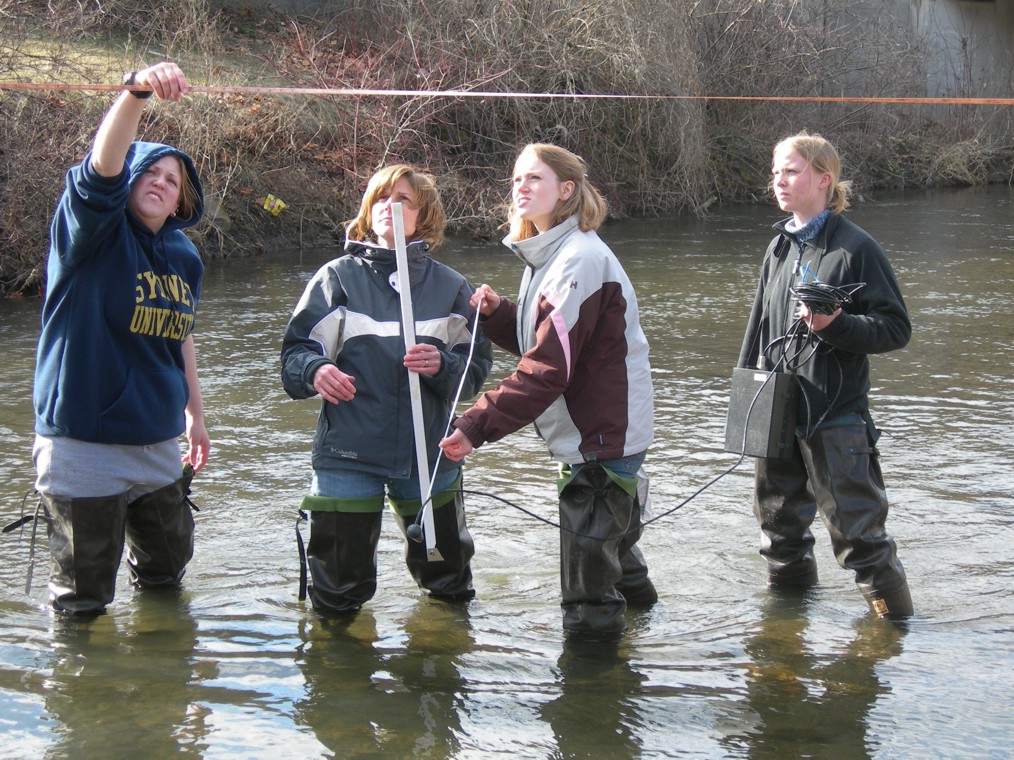 Who's
invited? How can I participate?
Who's
invited? How can I participate?
- Are you a woman in high
school in the greater Allentown-Kutztown-Reading area who enjoys your
science
classes, but doesn't know if college is right for you?
- Are you a professional
woman scientist who would like to lend a helping hand to a someone in
the next generation of scientists?
If so, please contact Dr.
Friehauf at:

Potential participants will be invited to meet with Kutztown University
faculty to identify specific, appropriate opportunities.
Links to great organizations
Recommended Reading
- Biographies
- Non-biographies
- Lynn Margulis
- Marcia Bjornerud
- Natalie Angier (not a scientist, but a good
science writer)
- Studies
Scientist blogs (read "on-line
diaries" of women scientists)




 Dr.
Samantha
Hansen - Geophysicist - Pennsylvania State University
Dr.
Samantha
Hansen - Geophysicist - Pennsylvania State University  Dr.
Lindsey
Chambers - Planetary Physicist
Dr.
Lindsey
Chambers - Planetary Physicist Dr. Aviva Sussman - Los Alamos National
Laboratory Geoscientist
Dr. Aviva Sussman - Los Alamos National
Laboratory Geoscientist Caroline
Lease -
professional microbiologist
Caroline
Lease -
professional microbiologist Dr.
Donna
Shillington - Geophysicist
- Columbia Univeristy
Dr.
Donna
Shillington - Geophysicist
- Columbia Univeristy
 National Science
Foundation MARGINS
speaker
National Science
Foundation MARGINS
speaker
 Dr.
Sara
Pruss - Paleontologist -
Smith College
Dr.
Sara
Pruss - Paleontologist -
Smith College Dr.
Rónadh
Cox - Geologist - Williams
College
Dr.
Rónadh
Cox - Geologist - Williams
College Dr.
Mercedes
Richards - Astrophysicist - Pennsylvania State
University
Dr.
Mercedes
Richards - Astrophysicist - Pennsylvania State
University Dr.
Kamini
Singha -
Hydrogeologist
-
Pennsylvania
State University
Dr.
Kamini
Singha -
Hydrogeologist
-
Pennsylvania
State University Dr.
Kim Shively - Anthropologist - Kutztown University
Dr.
Kim Shively - Anthropologist - Kutztown University Dr. Joan Ramage -
Remote Sensing Geoscientist - Lehigh
University
Dr. Joan Ramage -
Remote Sensing Geoscientist - Lehigh
University Jessica
Slish - Physicist - Yuasa
Battery
Jessica
Slish - Physicist - Yuasa
Battery Dr.
Anne
Zayaitz - Microbiologist
Kutztown University
Dr.
Anne
Zayaitz - Microbiologist
Kutztown University Melissa
Kistler
-
Inorganic chemist - Inorganic Chemist - Lehigh University
Melissa
Kistler
-
Inorganic chemist - Inorganic Chemist - Lehigh University Adrienne
Oakley
-
Marine
Geophysicist - Marine Geophysicist - University of Hawaii
Adrienne
Oakley
-
Marine
Geophysicist - Marine Geophysicist - University of Hawaii The High
School
Mentoring
Program pairs high school women with
college
science women. This program has the
goals of counteracting negative societal programming that undermines
self-esteem
(e.g., peer pressure to pursue traditional roles), encouraging young
women to pursue
college educations in science, and empowering them before they get to
college
so that they are more successful coming into the program.
Many high school students in rural
The High
School
Mentoring
Program pairs high school women with
college
science women. This program has the
goals of counteracting negative societal programming that undermines
self-esteem
(e.g., peer pressure to pursue traditional roles), encouraging young
women to pursue
college educations in science, and empowering them before they get to
college
so that they are more successful coming into the program.
Many high school students in rural  The Professional Mentoring
Program creates a direct, private, and
therefore potentially frank and open environment for experienced
professional
women scientists to discuss potential issues with
The Professional Mentoring
Program creates a direct, private, and
therefore potentially frank and open environment for experienced
professional
women scientists to discuss potential issues with  Finally, we are
planning fieldtrips to
major museums that would bring together participants in both mentoring
programs, thus introducing the high school students to professional
women in
science through their common friend (the college student).
These fieldtrips are intended to be a social
activity that cross-pollinates many mentoring pairs.
Finally, we are
planning fieldtrips to
major museums that would bring together participants in both mentoring
programs, thus introducing the high school students to professional
women in
science through their common friend (the college student).
These fieldtrips are intended to be a social
activity that cross-pollinates many mentoring pairs.  The Setting an Example
Lecture Series will bring professional women
scientist speakers in from industry and academia to present their
scientific
research. These talks will be open to the
public. By presenting their science, these scientists demonstrate
to the general public that women can be
powerful
forces in science, thus counteracting traditional, negative stereotypes. We will also invite two-career couples
with families to give some of
the presentations, which will act as a springboard for discussing
two-career family
issues. We plan
to have two speakers each month: one from a local scientific industry
and one
from a
broader, national pool.
The Setting an Example
Lecture Series will bring professional women
scientist speakers in from industry and academia to present their
scientific
research. These talks will be open to the
public. By presenting their science, these scientists demonstrate
to the general public that women can be
powerful
forces in science, thus counteracting traditional, negative stereotypes. We will also invite two-career couples
with families to give some of
the presentations, which will act as a springboard for discussing
two-career family
issues. We plan
to have two speakers each month: one from a local scientific industry
and one
from a
broader, national pool.  On
days that we have speakers, high school students participating in the
program will be encouraged to shadow their college student mentors from
breakfast through dinner so
they get a first-hand feeling for what life is like as a college
science student.
On
days that we have speakers, high school students participating in the
program will be encouraged to shadow their college student mentors from
breakfast through dinner so
they get a first-hand feeling for what life is like as a college
science student. Who's
invited? How can I participate?
Who's
invited? How can I participate?
 Earth Science Women's
Network
Earth Science Women's
Network Association
for
Women
Geoscientists
Association
for
Women
Geoscientists  American Physical
Society - Committee on the Status of Women in Physics
American Physical
Society - Committee on the Status of Women in Physics American Chemical Society -
Women Chemists Committee
American Chemical Society -
Women Chemists Committee Association for Women in Science
Association for Women in Science